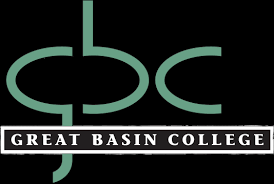Great Basin College Degrees and Programs
Great Basin College appears in our ranking of the 50 Most Affordable Online Degree Programs For In-State Students. Students who attend Great Basin College may earn:- associate degrees
- bachelor’s degrees
- certificates
- business
- computer technology
- education
- health sciences
- social sciences
- art
- technology
- certificates of achievement
- skills certificates
- having a minimum 3.0 GPA on a 4.0 scale
- passing the End of Program Assessment
- passing the Employability Skills for Career Readiness Assessment
- Bachelor of Arts in English
- Bachelor of Arts in Social Science
- Bachelor of Science in Nursing, which is an RN to BS in nursing program
- land surveying
- digital information technology
- graphic communications
- management and supervision
- Associate of Arts in English
- Associate of Arts in Social Science
- Associate of Arts in Early Childhood Education
- Associate of Arts in Business
- accounting
- graphic communications
- early childhood education
- diagnostic medical sonography
- substance abuse counseling, as well as many other topics.
About Great Basin College
Great Basin College was founded as Elko College in 1967. It joined the University of Nevada system a few years later. The college was in danger of closing shortly after it was founded until billionaire Howard Hughes donated $250,000 to keep the college open. The college has around 3,800 students attending its Elko, Nevada location. Students come from a large portion of Nevada. The college’s reach extends over 10 counties throughout the state. There are several branch campuses in the towns of:- Pahrump
- Winnemucca
- Battle Mountain
Great Basin College Accreditation Details
Great Basin College is regionally and institutionally accredited by the Northwest Commission on Colleges and Universities. The college is also a member of the Nevada System of Higher Education. Some nationally recognized organizations have also approved or accredited individual programs at the college. Programmatic approvals include the associate degree programs in nursing and the bachelor’s degree program in nursing. They are accredited by the Accreditation Commission for Education in Nursing, Inc. The programs in radiologic technology are accredited by the Joint Review Committee on Education in Radiologic Technology.Great Basin College Application Requirements
Great Basin College has an open admissions policy. Students must still meet the minimum application requirements to be admitted. They must also meet prerequisite accomplishments for some classes and programs. Some programs have enrollment caps. Early applications are essential for gaining entry to the college’s most popular degrees. Students can apply for admission online. They may also use the college’s advisement services for assistance with the process. International students must meet some initial qualifications before gaining access to programs at the college. Applicants will:- apply online to the college through the international application
- submit a copy of a passport
- send evidence of having passed an English language proficiency test
Tuition and Financial Aid
Nevada residents will pay $108.25 per credit for lower-division classes. They pay $173.75 for upper-division classes. High school students who participate in concurrent enrollment pay $54.13 per credit for lower-division classes and $173.75 per credit for upper-division classes. Students who enroll in credits that go beyond full-time enrollment pay $159.63 per credit for lower-division classes. They pay $257.88 per credit for upper-division classes. Non-residents who take classes online pay $159.50 per credit for lower-division classes and $258.00 per credit for upper-division classes. Non-residents who attend classes on campus pay $221.25 per credit for lower-division classes and $358.95 for upper-division classes. Students who live in adjacent states to Nevada pay $159.63 per credit for lower-division classes and $257.88 per credit for upper-division classes. Students may qualify for financial aid in the form of:- federal grants
- scholarships
- federal student loans
- funding from private sources
- submit official transcripts
- complete their FAFSA application
- fill out an extra scholarship application that is ssent directly to the college.
Featured Programs
Related Resources:
Top 10 Low Cost Online Degree Programs
30 Best Political Science Online Programs (Bachelor’s)
Top 30 Affordable BBA Degree Online Programs
Top 50 Best Affordable RN to BSN Online Degrees
